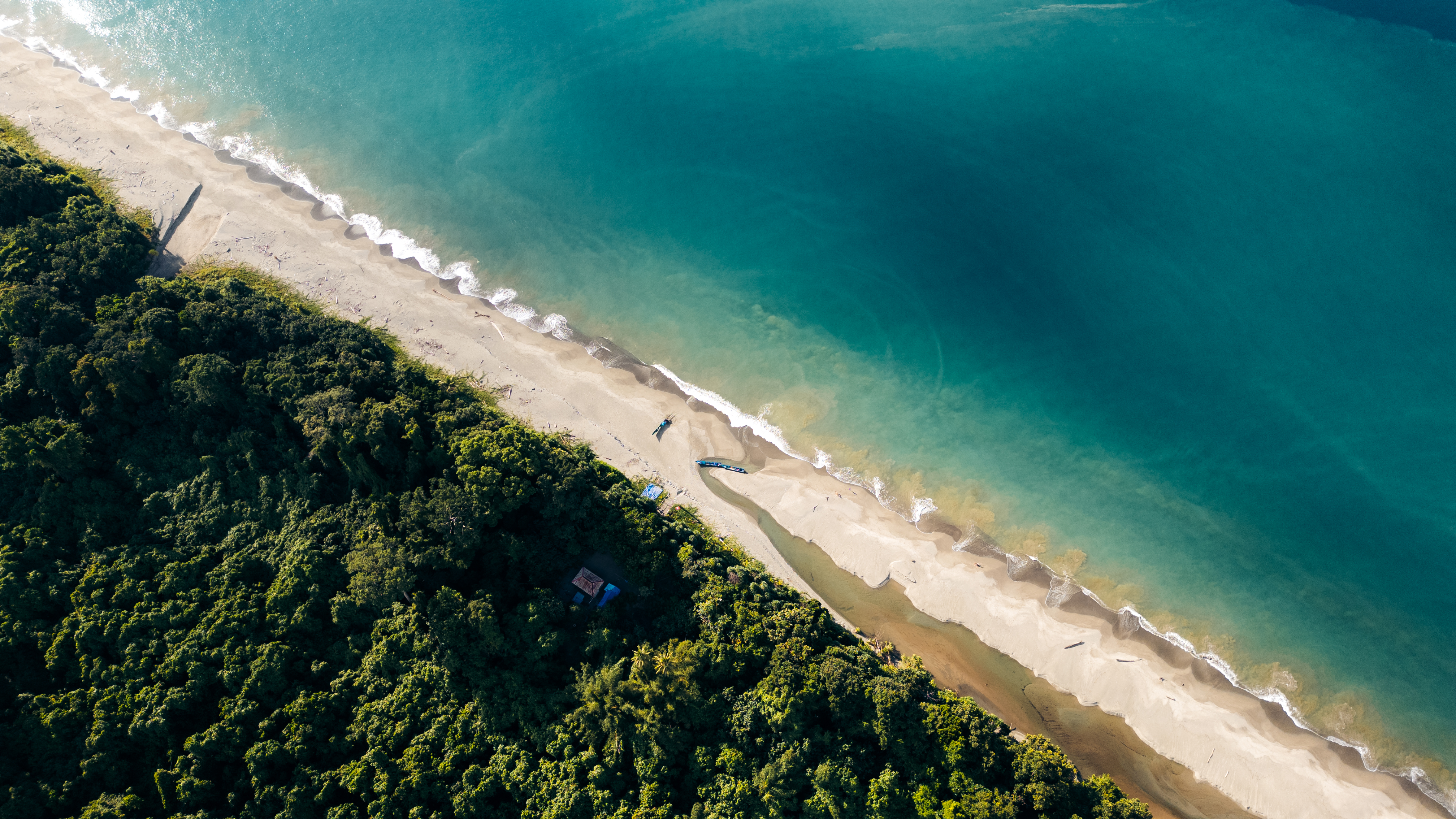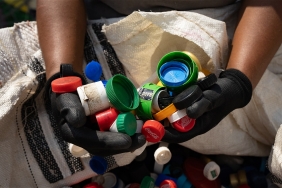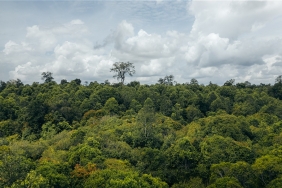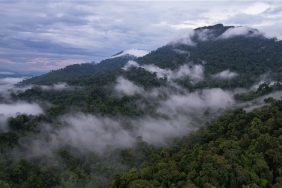HSBC "VOLUNTEER DAY" IN BUMI PANDA
By: Sani Firmansyah & Natalia Trita Agnika
On Sunday (14/02), WWF-Indonesia in partnership with HSBC held a "Volunteer Day" at Bumi Panda, Bandung. The activity is a supporting activity as part of the WWF-Indonesia and HSBC partnership program "Marine Conservation in Eastern Indonesia" which was launched on Wednesday, October 28, 2015 in Jakarta.
During the Volunteer Day, HSBC employee volunteers were introduced to WWF's marine programs in eastern Indonesia, namely in Solor Alor, Teluk Cendrawasih, Wakatobi, and Labuan Bajo. HSBC employees who were involved as volunteers were educated on how they could participate in the program.
The program began with a tour around the Land of the Pandas. All participants were introduced to the journey of conservation work carried out by WWF-Indonesia since 1962 until today. The participants were very enthusiastic about the tour because they were able to know the environmental conditions in Indonesia. While in the "species room", the participants received information about various key animals that are the focus of WWF-Indonesia's conservation work, namely Javan rhinos, orangutans, Sumatran tigers, Sumatran elephants, sea turtles, and whale sharks. One of the key animals that caught their attention was sea turtles. Sani Firmansyah from Bumi Panda explained that from the results of necropsies (dissection) of dead sea turtles, many reports from the field showed the fact that plastic was found in the stomach of dead sea turtles. "This proves that plastic waste affects sea turtles and even disrupts the ecosystem in the sea as well," Sani explained.
The volunteers from HSBC were also invited to discuss the results of the tour around the Land of Pandas in the "experience room". Asep, one of the HSBC volunteers asked, "How can we protect the sea turtle population?" Sani explained by giving an example of real action, namely by not littering when visiting the beach or sea. "In addition, we can also start to minimize the use of plastic bags and support various conservation efforts carried out by WWF-Indonesia," he said.
The activity continued with a sharing session on the "Marine Conservation for Eastern Indonesia" program by Intan Mawarwati Sukarna, WWF-Indonesia's Fundraising Development. The explanation of Indonesia's marine wealth opened with information about the various potentials of Indonesia's marine wealth, including 76% of coral reef species in the world are found in Indonesian seas, as much as 40% of the need for tuna fish is supplied by Indonesian seas, and 6 out of 7 species of sea turtles in the world often breed in Indonesian seas and beaches. In addition, around 120 million people depend on the sea for their livelihoods.
However, over-exploitation is a real threat to Indonesia's ecosystems and seas. The rise of fishermen who still use trawlers and bombs to catch fish also threatens the sustainability of Indonesia's marine ecosystem. Other threats are irresponsible tourism practices and millions of tons of plastic waste in the world's oceans that are causing the current marine ecosystem to be disrupted.
Intan also explained the various efforts that have been made related to marine conservation. WWF-Indonesia has made efforts for waste management by building waste banks. One of them is on Komodo Island. The community there is educated to utilize the waste around them so that it has added value. In terms of food, WWF-Indonesia issued a seafood guide that invites seafood lovers to choose fish wisely for sustainable fisheries.
On this occasion, the participants received an explanation of the latest program resulting from the collaboration of WWF-Indonesia and HSBC, namely the "Fresh Water Lab" which will be located in the Rimbang Baling Landscape, Riau. This program is conducted because 70% of rivers in Indonesia are currently polluted due to human activities, industrial waste, household waste, and mining waste. Illegal logging in the upper reaches of rivers has also led to a decline in river water quality. In fact, the river is a source of life for the surrounding community as well as for the sustainability of one of the animals protected by WWF-Indonesia, namely the Sumatran Tiger. Later, in the water laboratory, the community and researchers from WWF can find out the condition of the river and can make various efforts to protect the river.
Children who participated in the "Volunteer Day" activities also received education about water through the screening of the movie "Banyu's Adventure in the Water World". After watching the movie, the children were reminded to be water-saving. After watching the movie, all the children were invited to color pictures of sea turtles while being explained about the condition of the sea turtles. They also decorated their faces with various pictures of umbrella animals through face painting.
All participants seemed excited to follow the whole series of activities. "After participating in this activity at WWF-Indonesia's Panda Earth, my family and I understand more about how humans should behave towards nature," said Roni Firman Sunandar, an HSBC employee who was one of the participants. This has become a provision for him and other participants when later volunteering for activities in the next program.





